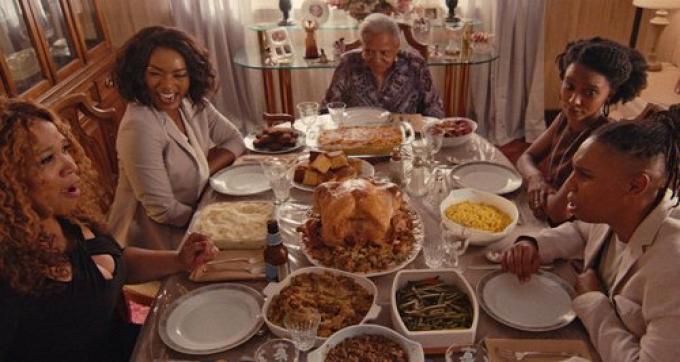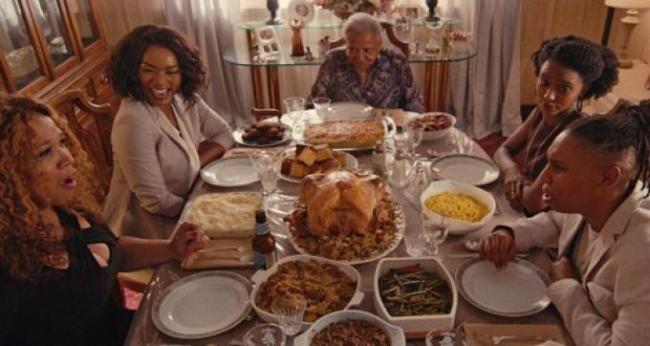Lena Waithe Captures How Family Dynamics Change When You Come Out in Master of None’s “Thanksgiving”


By now, you’ve probably heard that the new season of Master of None is even better than the first, creatively tackling dating, food, and family. While I think the show’s look at romance and dating in the modern day is insightful and entertaining, Master of None’s storylines about children and their parents have always been the most compelling for me in the way it looks at minority and immigrant families with nuance, something we don’t get nearly enough.
One of the most stand-out episodes of season one for me was the second, centered around the relationships between Dev (Ansari) and Brian (Kelvin Yu) and their immigrant parents. This season, it’s “Thanksgiving,” the episode that focuses on Denise (Lena Waithe) and her coming out story. “Thanksgiving” takes us into Denise’s home on the holiday when she’s a child, a teenager, and an adult as she goes from admiring posters of Jasmine Guy and Jennifer Anniston to bringing serious girlfriends home. It’s a beautiful way to look at how Denise’s family comes together (with Dev almost like a sibling) each year and to see how coming out can change relationships. With Angela Bassett making an appearance as Denise’s mom, it could honestly stand on its own as a short film.
Lena Waithe spoke to E. Alex Jung of Vulture about writing the episode she calls “the most autobiographical thing I’ve ever written.” The design of their house, Waithe says, came from old pictures of her teenage room and family. The conversations they have in passing and at the table, the actress says, is also representative of her house “literally just black women talking all the time.”
As we see Denise come to terms with her sexuality, we also see Bassett’s character struggle with her daughter being gay. Of her television mom, Waithe wanted to make sure she wasn’t villainized, saying:
“I’m happy I got to tell that story, because I think that’s the root of most parents. They may be buried or shrouded in other things, but when you strip everything away, that’s what it is: They want their children to lead a happy, “normal” life.
And I also think there’s a dream they have to bury of what they thought their children’s lives would look like, and that’s a mourning process gay children have to allow space for. I was a little rebellious about it, but looking back, I can see that I had to give that same amount of space and understanding that I’m asking for as well. It’s growing. It’s a journey for both sides.”
“We don’t claim for it to be everyone’s story,” says Waithe, “but I think we really wanted to be vulnerable.” The changing dynamics of the family as things go from strained to bad to loving must have been difficult to capture, but this team does it incredibly well. A word the actress uses several times in the interview is “organic,” and that’s the perfect way to describe this story.
You can read the full interview over at Vulture, where Waithe also talks more about the episode (did you catch the Lemonade reference?), Bassett, and her new series The Chi and Twenties. Have you seen “Thanksgiving”? What did you think about the episode?
(Image: Netflix)
Want more stories like this? Become a subscriber and support the site!
—The Mary Sue has a strict comment policy that forbids, but is not limited to, personal insults toward anyone, hate speech, and trolling.—
Have a tip we should know? [email protected]